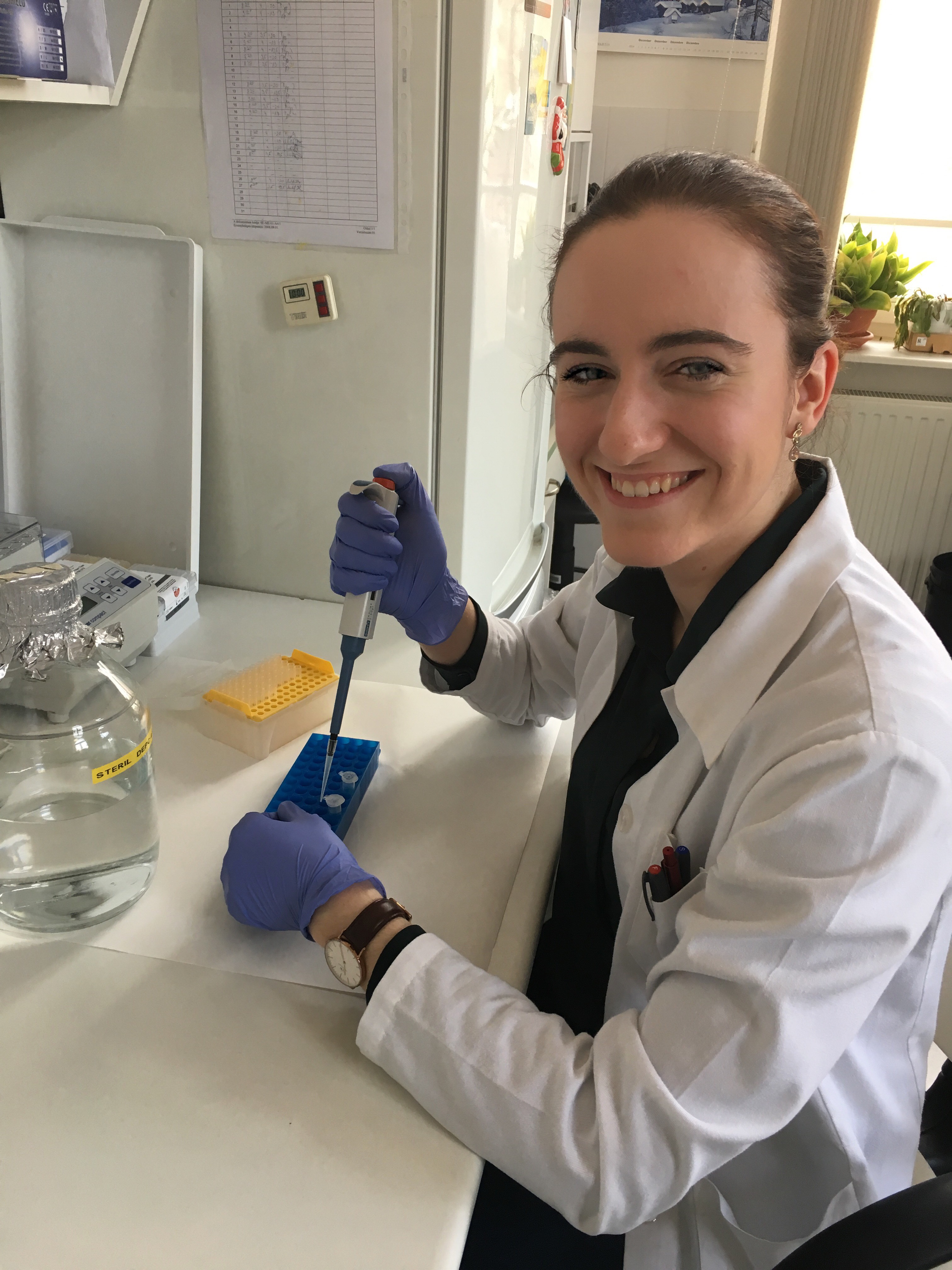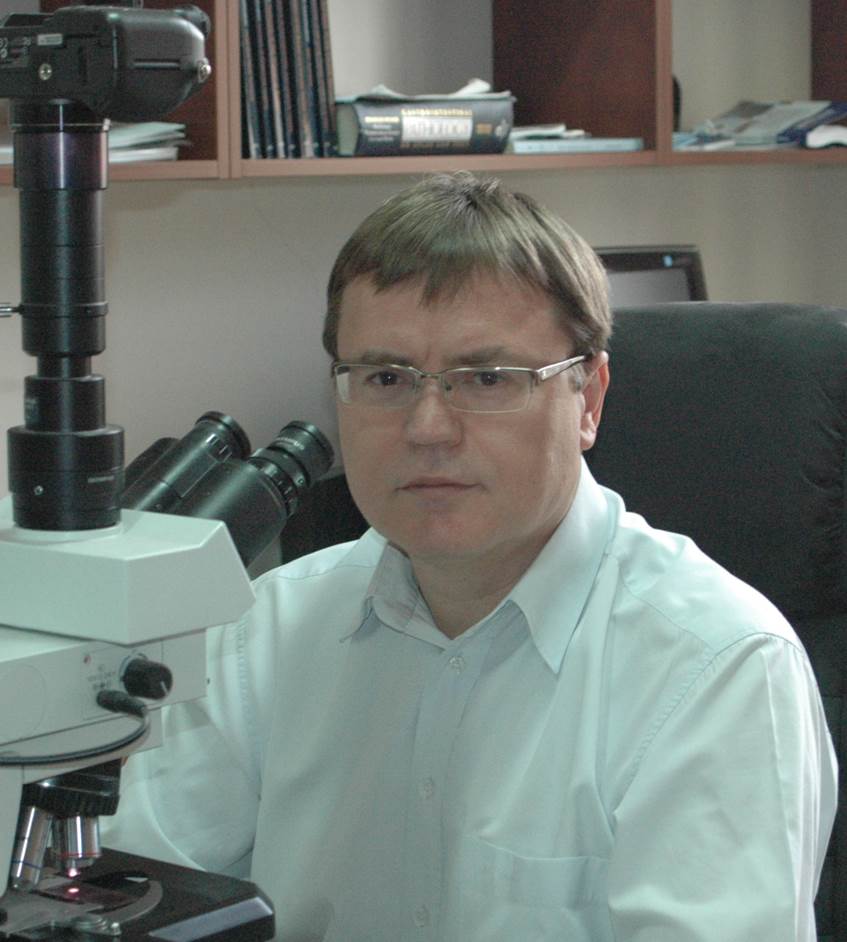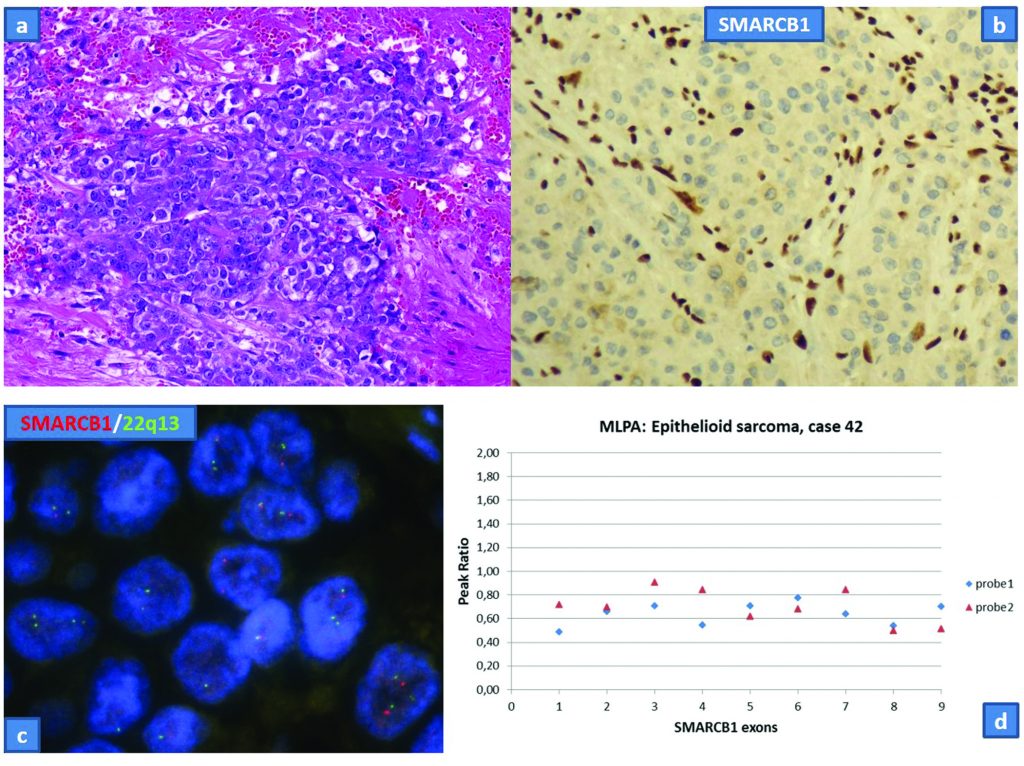Head of the laboratory: Professor Dr. Sápi Zoltán, PhD, Dsc.
Current projects and main results:
Basically we investigate the genetics and epigenetics of different soft tissue tumors. The research group would like to prove that loss of SMARCB1 expression (also known as INI1)- the main protein subunit of the SWI/SNF chromatin remodeling complex- was not only caused by biallelic mutation of the gene but also caused by the silencing of the gene expression and mRNA degradation through microRNA molecules. We examine the general and specific silencing effects of microRNA-206 (miR-206) in in situ cell cultures using miR-206 permanent transfection. According to our results, miR-206 plays central role in the pathogenesis of SMARCB1 absent sarcomas (epithelioid sarcoma, synovial sarcoma, etc.). Recently we are investigating the pathomechanism of synovial sarcoma using the firstly generated (by us) human SYT-SSX1 cloned mesenchymal cell culture.
Publications:
1, Sápi Z, Papp G, Szendrői M, Pápai Z, Plótár V, Krausz T, Fletcher CD. Epigenetic regulation of SMARCB1 By miR-206, -381 and -671-5p is evident in a variety of SMARCB1 immunonegative soft tissue sarcomas, while miR-765 appears specific for epithelioid sarcoma. A miRNA study of 223 soft tissue sarcomas. Genes Chromosomes Cancer. 2016 Oct;55(10):786-802. doi: 10.1002/gcc.22379.
2, Papp G, Krausz T, Stricker TP, Szendrői M, Sápi Z. SMARCB1 expression in epithelioid sarcoma is regulated by miR-206, miR-381, and miR-671-5p on Both mRNA and protein levels. Genes Chromosomes Cancer. 2014, 53: 168-76.
3, Papp G, Changchien YC, Péterfia B, Pecsenka L, Krausz T, Stricker TP, Khoor A, Donner L, Sápi Z. SMARCB1 protein and mRNA loss is not caused by promoter and histone hypermethylation in epithelioid sarcoma. Mod Pathol. 2013, 26: 393-403.
4, Changchien YC, Tátrai P, Papp G, Sápi J, Fónyad L, Szendrői M, Pápai Z, Sápi Z. Poorly differentiated synovial sarcoma is associated with high expression of enhancer of zeste homologue 2 (EZH2). J Transl Med. 2012, 10: 216.
Members of the laboratory:
Dr. Sápi Zoltán, professor
Dr. Papp Gergő, research fellow
Dr. Mihály Dóra, PhD student
Polgár Zoltánné, laboratory assistant



